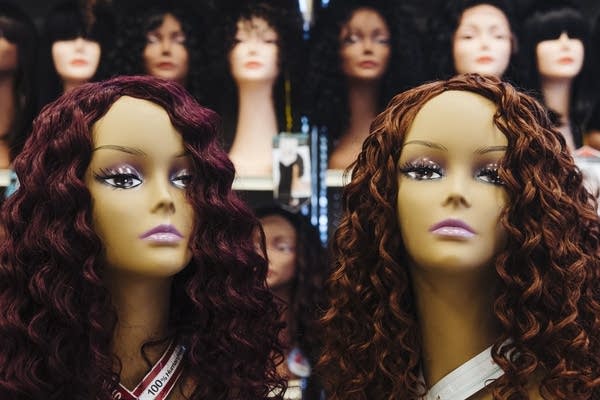Roots of tension: race, hair, competition and black beauty stores

Wigs made of human hair sit on mannequin heads inside Bella Beauty and Hair in Brooklyn Park.
Evan Frost | MPR News
Go Deeper.
Create an account or log in to save stories.
Like this?
Thanks for liking this story! We have added it to a list of your favorite stories.


